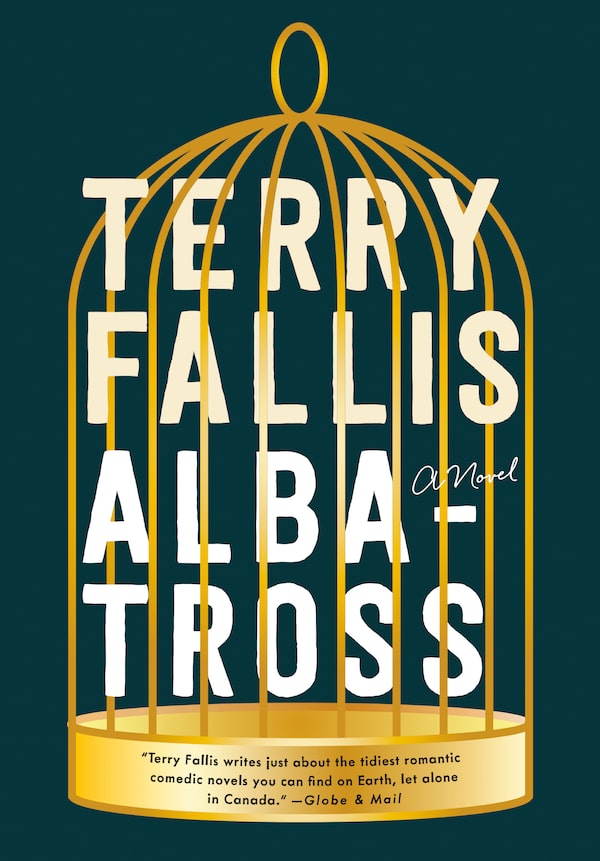Dog days got you in a fog? Journey toward clarity with three very different novels with a singular aim: discovering what is true – whether that be the meaning of life, the value of love or, you know, who killed the neighbour three doors down.

Handout
- Someone We Know
- Author: Shari Lapena
- Publisher: Penguin Random House
- Pages: 304
How well do we know our neighbours? Shari Lapena tackles this question – central, really, to most domestic noir – in her latest thriller, set in the leafy surrounds of a generically upper-middle-class neighbourhood in upstate New York. The intrigue begins with a break-and-enter (the benignest sort, just a teenager snooping in other people’s houses for kicks) and then quickly complicates itself with the discovery of a body (the suspicious sort, given that it’s a local woman found in the trunk of her own car, submerged in a lake). The dead woman was a newer arrival to the town and had made a splash (and perhaps a few enemies) with a flirtatious debut at a neighbourhood barbecue not too long before she disappeared. (Think Scarlett O’Hara in the suburbs and you’re close.) Assuming you’re well-versed in the genre, by this point you’re suspicious of everyone: the not-quite-devastated-enough husband of the murdered woman, the neighbour across the fence who seems a little too devastated on his behalf, the local executive with a wandering eye and his troubled son, known for wandering the streets in a drunken stupor at night. None of the characters are drawn particularly deeply, and, word of warning, you may struggle at times to remember which bored housewife or cheating husband is which. I had a fairly strong hunch about the murderer’s identity around halfway through, but more than enough interest to keep me turning the pages – and I was surprised, in the end, by the precise details of how Lapena resolves it all. If you’re in search of an undemanding-but-absorbing book to while away a slow August afternoon, look no further.

Handout
- Albatross
- Author: Terry Fallis
- Publisher: McClelland & Stewart
- Pages: 400
Can true satisfaction be found in being very, very good (like, once-in-a-generation, unicorn-level good) at something you actively dislike doing? That’s the premise of Terry Fallis’s latest novel, which chronicles the rise – and existential crises – of one Adam Coryell, a high-schooler who is discovered to have a genetic predisposition to be freakishly, naturally, birdies-without-trying at golf. The only problem? The sport bores him to death, he struggles with all the (in his opinion) unmerited fame and fortune it brings him and, anyway, all this sweet, nerdy kid from Toronto ever wanted was to be a writer. That situation is complicated by the fact that whatever measure of superlative talent he has on the links is mirrored by the slightly-better-than-average mediocrity of his skill on the page. This novel has a fable-like quality and philosophical depths that Fallis plumbs with a deceptive subtlety – you’ll come for the story about an athletic whiz kid, and leave contemplating where true happiness really lies, both in Adam’s life and your own. (Cue an unexpected questioning of your own life goals.) Fallis is a winner of the Leacock Medal for Humour, and while the novel is gently amusing, it owes more in spirit to, say, Sparks than Twain. Not only is there a love story at this novel’s heart (and, for all the Notebook fans out there, even an impossible love named Alli), but there’s also a kind of hopeless romanticism about Adam’s dogged pursuit of meaningful work over lucrative emptiness, whatever the cost. Oh, and points must be awarded for the cleverness of the title, nodding both at the “albatross” of Adam’s unasked-for talent and an actual shot in golf. It is, naturally, the rarest one of all.

Handout
- Say You Still Love Me
- Author: K.A. Tucker
- Publisher: Simon & Schuster
- Pages: 384
This novel bills itself as a “steamy summer read,” but is it really? Yes and no. The story of Piper and Kyle – who fall in love as camp counsellors and reconnect as adults from vastly different worlds – certainly has plenty of sexy bits and, indeed, you can still squeeze it onto your reading list before Labour Day. But if you’re looking for a mindless romp, you’ll be disappointed. As with her other novels, Tucker writes romances with (at least one foot) in the real world, meaning: It’s more likely that her protagonists’ own issues will be what comes between them than some mustachioed villain, plotting true love’s downfall from the shadows. For Piper and Kyle, those issues are twofold: His unexplained radio silence since camp ended a decade ago and her present-day position as the heir to a construction empire, relative to his job as her office building’s night security guard. This power dynamic – the reverse of, say, Christian Grey and Anastasia – is a refreshing change, as is Tucker’s examination of how something such as class can affect a relationship. It’s not the stuff of bodice-rippers (although there’s that in here, too), but it is a book that takes an everyday sort of love seriously. These are people who, like, talk through their problems, get in fights, spend 10 years apart for complicated reasons that have to do with their own family drama, different priorities and just … life, you know? Say You Still Love Me won’t whisk you away to a fantasy kingdom … but who wants that anyway?
Expand your mind and build your reading list with the Books newsletter. Sign up today.